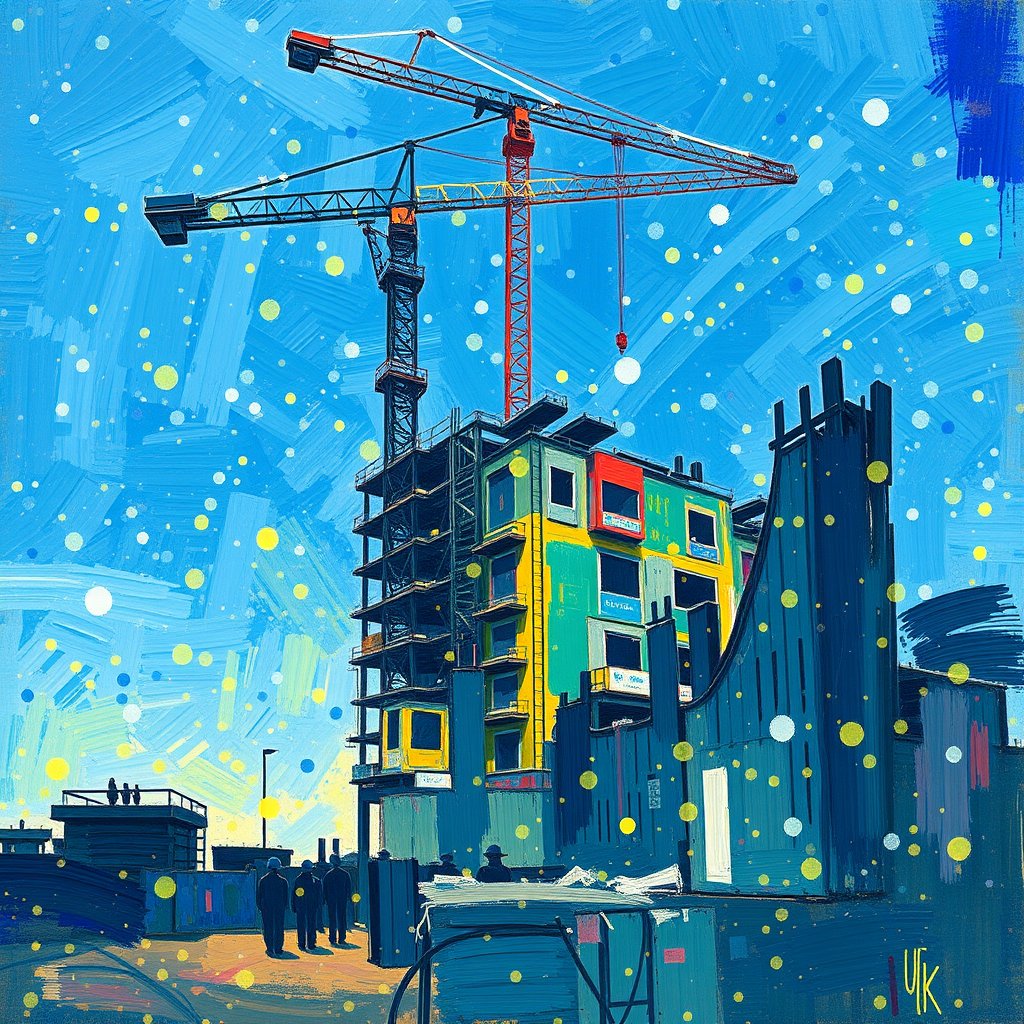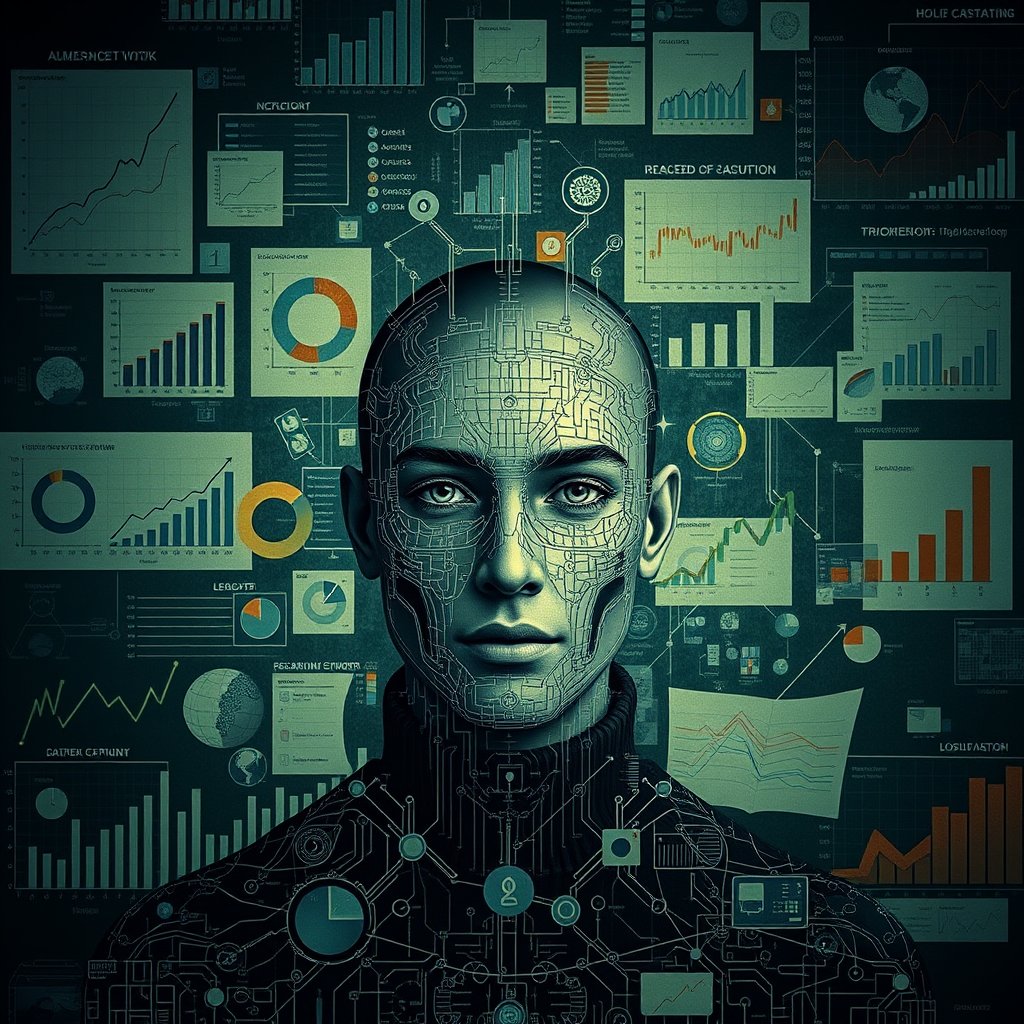The construction industry has a problem that costs billions annually: coordination chaos.
A typical commercial construction project involves 15-30 subcontractors, hundreds of material deliveries, dozens of inspections, thousands of tasks, and one simple truth—when any of these moving pieces fail to align, the entire project grinds to a halt at $10,000+ per day in delay costs.
For decades, the industry has tried to solve this with better project management software, more detailed schedules, and additional coordinators. But the fundamental challenge remains: construction is too complex for humans to coordinate manually at scale.
Enter FluxAI agents—autonomous systems that don't just track construction activities, but actively coordinate them across multiple stakeholders, systems, and constraints in real-time.
This isn't theory. Construction companies are already deploying AI agents and seeing measurable results: 20-30% reduction in schedule delays, 40-50% decrease in administrative overhead, and significant improvements in safety compliance and cost control.
Here's how AI agents are reshaping construction operations.
The Construction Coordination Problem
Before we discuss solutions, let's understand the scope of the challenge.
Consider a typical day on a mid-size commercial construction site:
- 50+ workers from 8 different subcontractors arrive
- 12 material deliveries are scheduled
- 3 inspections need to occur
- Weather forecast shows rain in the afternoon
- One subcontractor calls in sick, affecting 4 dependent tasks
- A material delivery is delayed, impacting tomorrow's concrete pour
- The architect issues a last-minute change order
- OSHA requires updated safety documentation
A human project manager must: - Reschedule tasks based on weather and resource availability - Coordinate with subcontractors about dependencies - Notify inspectors of timeline changes - Update the construction schedule - Order expedited materials to prevent downstream delays - Process change orders and update budgets - Ensure safety compliance documentation - Communicate changes to all stakeholders
This happens every single day. And this is just one project. Most construction firms manage 5-20 projects simultaneously.
The result? Project managers spend 60-70% of their time on coordination and administrative tasks rather than actual project oversight and problem-solving.
How FluxAI Agents Change the Game
AI agents transform construction from reactive firefighting to proactive coordination. Here are the key agents revolutionizing the industry:
Mason - Construction Project Coordinator
Mason is an AI agent that manages the intricate dance of scheduling, dependencies, and stakeholder communication.
What Mason does: - Monitors the project schedule and identifies conflicts automatically - Coordinates material deliveries with project milestones - Manages RFIs (Requests for Information) and ensures timely responses - Tracks change orders and updates schedules accordingly - Coordinates inspection schedules with inspector availability - Alerts to critical path delays before they impact the timeline
Real-world impact:
A general contractor managing a $45M mixed-use development deployed Mason and saw immediate results:
- Schedule delays reduced by 28% - AI identified conflicts days in advance rather than hours
- RFI response time cut from 4 days to 18 hours - Automated routing and follow-up
- Project manager administrative time reduced by 12 hours/week - Freed for strategic oversight
The project manager's perspective: "Mason doesn't replace my judgment—it gives me the information I need to make better decisions faster. Instead of spending mornings hunting down subcontractors to find out why something's delayed, I get proactive alerts with proposed solutions."
Kerry - Document Control Manager
Construction projects generate thousands of documents: plans, specifications, submittals, RFIs, change orders, permits, inspection reports. Keeping everyone working from current versions is a perpetual challenge.
What Kerry does: - Manages drawing revisions and distribution automatically - Ensures all stakeholders have current plans - Tracks submittal approvals and shop drawings - Maintains as-built documentation in real-time - Automates document version control - Provides instant access to relevant documents based on task/location
Real-world impact:
A subcontracting firm specializing in MEP (mechanical, electrical, plumbing) implemented Kerry across 8 active projects:
- Rework due to outdated plans reduced by 65% - Everyone works from current drawings
- Submittal approval cycle time cut by 40% - Automated tracking and follow-up
- Document search time reduced from 15 minutes to 30 seconds - AI-powered retrieval
The operations manager noted: "We used to have crews show up to install equipment based on outdated drawings because someone missed a revision notification. That doesn't happen anymore. Kerry ensures everyone has current information."
Mya - Safety Compliance Agent
Construction sites are inherently dangerous. OSHA reports that construction accounts for 20% of worker fatalities while representing only 5% of the workforce. Safety compliance isn't optional—it's life or death.
What Mya does: - Monitors daily safety reports and incident logging - Tracks certification expirations for workers and equipment - Automates OSHA reporting requirements - Identifies patterns in near-miss reports - Schedules required safety training - Conducts automated safety audits
Real-world impact:
A large commercial contractor deployed Mya across 12 active job sites:
- Safety incidents decreased by 34% - Proactive identification of hazards
- OSHA compliance violations down 78% - Automated tracking prevents expirations
- Safety meeting efficiency improved 45% - AI generates agendas based on site-specific risks
The safety director's assessment: "Mya acts like a safety manager on every job site simultaneously. It spots patterns we'd miss—like one crew having more near-misses than others, flagging a training need before someone gets hurt."
Simon - Construction Accounting Agent
Construction accounting is uniquely complex: job costing, progress billing, lien waivers, change orders, retainage, AIA billing forms. Manual processing creates delays and errors that impact cash flow.
What Simon does: - Processes progress billing and pay applications - Manages lien waivers and compliance documentation - Tracks change orders and cost overruns by cost code - Automates subcontractor payment processing - Monitors budget vs. actual spend in real-time - Generates financial reports by project/phase
Real-world impact:
A regional general contractor with 15 concurrent projects implemented Simon:
- Billing cycle time reduced from 8 days to 2 days - Automated progress billing
- Payment disputes down 60% - Clear documentation and tracking
- Cash flow improved 15% - Faster invoicing and collection
- Controller's administrative time reduced 20 hours/week - Automated processing
The CFO's perspective: "In construction, cash flow is survival. Getting invoices out faster and tracking receivables better has directly improved our working capital position. Simon paid for itself in the first 60 days."
Nico - Bid Management Agent
Winning bids requires accurate estimates, competitive pricing, and fast turnaround. AI agents are transforming the estimating process.
What Nico does: - Aggregates material pricing from multiple suppliers in real-time - Tracks historical cost data for estimate accuracy - Manages subcontractor bid collection and comparison - Identifies scope gaps in proposals - Generates detailed cost breakdowns by trade/phase - Analyzes win/loss patterns to optimize pricing strategy
Real-world impact:
A specialty contractor implemented Nico for HVAC projects:
- Estimate preparation time cut from 16 hours to 4 hours - Automated takeoffs and pricing
- Bid accuracy improved 22% - Better historical data and real-time pricing
- Win rate increased from 18% to 26% - More competitive, accurate bids
- Capacity to bid doubled - Same estimating team handles 2x volume
The chief estimator noted: "We used to turn down bid opportunities because we couldn't process them all. Now we can bid more work without sacrificing accuracy. And the AI learns from every project—our estimates get better over time."
The Measurable Impact: By the Numbers
Construction companies deploying AI agents report significant, measurable improvements:
Schedule Performance: - 20-30% reduction in schedule delays - 15-25% decrease in critical path disruptions - 40% faster response to schedule changes
Cost Management: - 10-15% reduction in budget overruns - 25-35% decrease in change order processing time - 8-12% improvement in gross margin
Safety & Compliance: - 30-40% reduction in safety incidents - 70-80% decrease in compliance violations - 50% faster incident documentation and reporting
Administrative Efficiency: - 40-60% reduction in coordination time - 35-45% decrease in document management overhead - 50-70% faster RFI and submittal processing
Cash Flow: - 15-20% improvement in days sales outstanding - 30-40% faster billing cycles - 25% reduction in payment disputes
Why Construction Needs AI Agents Now
The construction industry faces a perfect storm of challenges that make AI adoption not just beneficial, but necessary:
1. Labor Shortage Crisis
The construction industry needs to hire 650,000 additional workers in 2025 to meet demand, but can't find them. AI agents allow existing teams to handle more work without proportional headcount increases.
2. Margin Compression
Average construction profit margins are 2-5%. A single day of delay or a 5% cost overrun can eliminate all profit. AI agents prevent the small problems that cascade into major losses.
3. Increasing Complexity
Modern buildings involve more trades, tighter tolerances, stricter regulations, and compressed schedules than ever before. Human coordination can't keep pace.
4. Aging Workforce
The average construction project manager is 55+. As experienced managers retire, AI agents capture their knowledge and make it accessible to younger teams.
5. Technology Fragmentation
Construction companies use 10-15 different software platforms that don't talk to each other. AI agents integrate across systems, creating the coordination layer that's been missing.
Implementation: How to Get Started
Construction companies successfully deploying AI agents follow a clear pattern:
Phase 1: Identify the Pain Point (Week 1-2)
Don't start with "where can we use AI?" Start with "what's costing us the most money or causing the most problems?"
Common high-impact starting points: - Schedule coordination (if delays are your biggest issue) - Safety compliance (if incidents or violations are frequent) - Document management (if rework from outdated plans is common) - Billing and cash flow (if payment cycles are slow)
Phase 2: Pilot with One Agent on One Project (Week 3-8)
Select one AI agent for one specific workflow on one project. This allows you to: - Prove value without massive investment - Learn what works in your specific environment - Build confidence among skeptical team members - Refine processes before scaling
Critical success factor: Choose a project manager who's tech-comfortable and willing to experiment. Early adopters become your internal champions.
Phase 3: Measure and Refine (Week 9-12)
Track specific metrics: - Time saved on administrative tasks - Reduction in delays or incidents - Cost savings or margin improvement - User satisfaction among project team
Gather feedback from everyone who interacts with the AI agent—project managers, superintendents, subcontractors. Refine based on real-world usage.
Phase 4: Scale Systematically (Month 4+)
Once you've proven value on one project: - Expand the same agent to additional projects - Add complementary agents that integrate with the first - Document your process so scaling is systematic, not chaotic - Train additional team members as AI adoption champions
The mistake to avoid: Don't try to deploy AI across all projects and all workflows simultaneously. This guarantees failure. Crawl, walk, run.
Real-World Success Story: Regional General Contractor
A general contractor managing 12-15 commercial projects annually ($80M total volume) implemented AI agents systematically over 9 months:
Month 1-3: Pilot Phase - Deployed Mason (project coordination) on one $8M office building - Focused on RFI management and schedule coordination - Result: RFI response time cut from 5 days to 24 hours, schedule delays reduced 18%
Month 4-6: Initial Scaling - Expanded Mason to 4 additional projects - Added Blueprint (document control) to flagship project - Result: Consistent 20-25% reduction in coordination time across all projects
Month 7-9: Full Deployment - Mason and Blueprint on all active projects - Added Guardian (safety) and Ledger (accounting) - Integrated agents with existing project management and accounting software
9-Month Results: - Schedule performance: 27% reduction in delays, 22% improvement in on-time completion - Safety: 31% decrease in incidents, zero OSHA violations (down from 4 in prior year) - Financial: 12% improvement in gross margin, 18% better cash flow - Capacity: Handling 15% more project volume with same PM team
The CEO's assessment: "We were skeptical. Construction has tried technology before and it rarely delivers. But AI agents are different—they actually reduce work instead of creating more. Our project managers are doing what they were hired to do: manage projects, not shuffle paperwork. And our margins prove it's working."
The Human Element: What About Jobs?
The question every construction company asks: "Will AI agents eliminate jobs?"
The honest answer: Some roles will change significantly. Administrative coordinators and document controllers are being consolidated or eliminated. But overall employment in construction is increasing, not decreasing, because:
1. AI Creates Capacity, Not Unemployment
Construction has more work than workers. AI allows existing teams to handle more projects, not the same projects with fewer people.
2. Roles Evolve Upward
Project coordinators who spent 80% of their time on manual tracking now spend 80% on problem-solving and stakeholder management—higher-value, more satisfying work.
3. New Roles Emerge
Construction companies are hiring "AI operations managers" who optimize agent performance, train teams, and expand automation across workflows.
4. Retention Improves
Younger workers who grew up with technology appreciate AI tools that eliminate tedious work. Companies using AI agents report better recruitment and retention.
The real concern isn't job loss—it's the transition. A 30-year veteran document controller who's been doing their job the same way for decades faces a harder transition than a 25-year-old project engineer. Companies that invest in training and redeployment succeed; those that simply lay off struggle.
Looking Ahead: The Future of Construction AI
We're in the early innings of AI transformation in construction. Here's what's coming:
Short-term (1-2 years): - AI agents become standard on most commercial projects - Integration deepens between agents and existing construction software - Mobile interfaces make agents accessible to field workers, not just office staff - Voice-based interaction allows hands-free operation on job sites
Medium-term (3-5 years): - Predictive AI that forecasts problems weeks in advance, not days - Autonomous coordination across entire project portfolios - AI-powered quality control using computer vision and sensor data - Generative AI for design optimization and value engineering
Long-term (5-10 years): - AI agents coordinating with autonomous equipment and robotics - Self-optimizing construction sites that adapt in real-time - Complete integration from design through operations and maintenance - AI as the primary coordination layer for the entire built environment
The Bottom Line
Construction is a $1.8 trillion industry in the U.S. alone, yet it's one of the least digitized major sectors. Productivity in construction has been essentially flat for 40 years while other industries have seen dramatic improvements.
AI agents represent the first technology that actually fits how construction works—coordinating complexity across multiple independent parties rather than forcing everyone onto a single platform or process.
The construction companies deploying AI agents today aren't doing it to be cutting-edge. They're doing it because: - Their margins are too thin to absorb inefficiency - Their projects are too complex for manual coordination - Their teams are too stretched to handle administrative overhead - Their competitors are already gaining advantages
The question isn't whether AI agents will transform construction. They already are.
The question is whether your company will lead that transformation or scramble to catch up after competitors have already captured the efficiency gains, improved margins, and competitive advantages that AI agents deliver.
The technology is proven. The results are measurable. The time to start is now.
Ready to explore how AI agents can transform your construction operations?
At FluxAI, we've helped construction companies deploy AI agents that reduce delays, improve safety, and increase margins. We offer complimentary operational assessments to identify your highest-impact opportunities for AI agent deployment.
Learn more at fluxagents.ai or schedule a consultation to see how AI agents would work in your specific construction environment.
The future of construction isn't built on better project management software. It's built on AI agents that actually coordinate the chaos.



